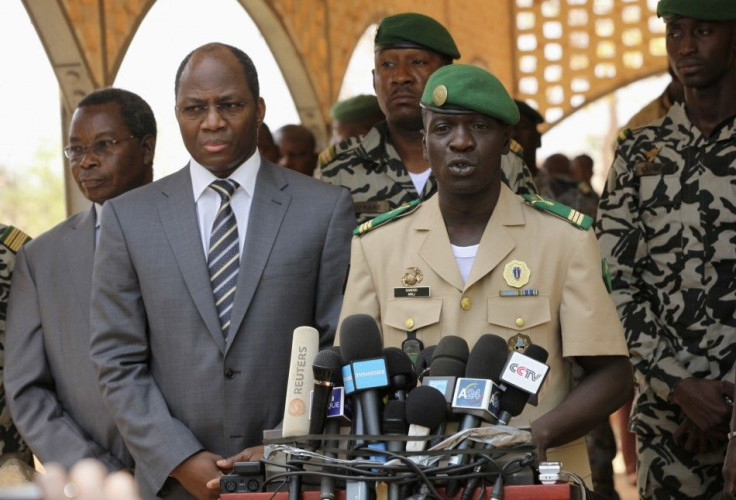Mali's Coup Leader Agrees To Hand Over Power To Civilian Government

Captain Amadou Sanogo, a junior officer in the military who led the coup in Mali, has agreed to handover power to a civilian government, state local television reports. The move came after intense pressure from the international community, which outrightly denounced the coup in March. They also rejected the declaration of independence announced by the Tuareg rebel leaders.
In the new agreement between the military junta and the African Union, the coup leaders will hand over the power in exchange for lifting up of trade and diplomatic sanctions imposed on Mali by the African Union and the West.
ORTM, the state TV, reported that the coup leaders and the Economic Community of the West African States have agreed to a plan to appoint a transitional prime minister who will facilitate the power change. In a statement read on the state TV, Sanogo said that the transitional prime minister will manage the crisis in the northern Mali and organize free, transparent and democratic elections in accordance with the agreed road map.
The military coup that took place in the third week of March overthrew the democratic government in Mali blaming the government for its failure to handle the Asawad insurgency by the Tuareg rebels. The coup led to destabilization in the region, and the international community as well as the African countries imposed sanctions on Mali and the military junta which organized the coup.
Exploiting the chaos that arose after the coup, the Tuareg rebels, who call themselves the Azawad National Liberation Movement (MNLA), captured Northern Mali and named it Azawad, declaring independence in the region two days ago.
The rebels have been fighting against the military and the government since January to establish Northern Mali as a separate state.
The rebels said in a statement posted on their website that more than 50 years of corruption and poor governance with the complicity of the army and the politicians, putting people's lives at risk in Azawad has ended now.
However, the declaration of independence by the Tuareg rebels did not get international approval and most of the African countries and the West condemned it. The African Union rejected the independence call and imposed diplomatic sanctions on the country, stating that all the five neighbors would close their borders with the country.
Western countries also imposed sanctions on Mali and said they did not recognize the independence declaration of the separatist group.
© Copyright IBTimes 2024. All rights reserved.












